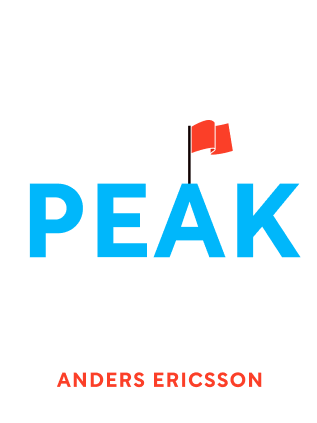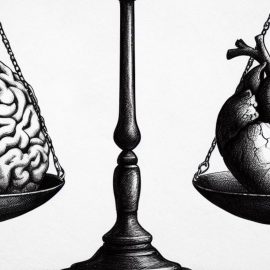

This article is an excerpt from the Shortform book guide to "Peak" by Anders Ericsson. Shortform has the world's best summaries and analyses of books you should be reading.
Like this article? Sign up for a free trial here .
What is purposeful practice? How can it help you break through your natural limits? Why is the phrase, “practice makes perfect” incorrect?
Purposeful practice has four distinct components that distinguish it from merely repetitive practice: it has well-defined, specific goals, it demands complete focus, it involves feedback, and it requires you to push beyond your comfort zone.
Continue on to learn more about purposeful practice and how you can improve how you practice.
What Is Purposeful Practice?
We are in awe of the world’s peak performers in music, athletics, and countless other fields. People like tennis star Roger Federer, Olympic vaulter McKayla Maroney, or history’s brilliant composers like Beethoven, Chopin, and Rachmaninoff seem to us to be otherworldly figures, overflowing with an almost divine talent. Surely these individuals must be in possession of some rare gift, some innate spark that the rest of us simply don’t have.
But that isn’t the case at all. How did these people become so good at what they do? The answer may seem banal, but it’s true: they practiced. They practiced the right way, they practiced with the right people, and they practiced a lot. Moreover, across all these fields, the principles of effective practice are the same, because they involve the same mental processes. The specific techniques may differ, but the basic process of challenge and improvement is the same: ballerinas and laparoscopic surgeons both become great using the same basic process. And because we can look to the great achievers of the past and present and study their success, we have a blueprint: we, too, can achieve new heights of performance.
Does Practice Really Make Perfect?
We’ve all heard the phrase “practice makes perfect.” The more you work at something, the better you’ll get at it. But is this true of all kinds of practice? Will mere repetition of the same task over and over again really improve your abilities? Or is there a certain kind of practice that truly challenges you to reach greater and greater heights of achievement, one that unlocks your true potential?
Most of us think of “practice” as the simple repetition of a task. And, to be sure, this kind of practice will yield some results. If you’re learning how to play tennis, for example, you’ll probably be able to iron out your most embarrassing mistakes and figure out how to serve the ball somewhat competently. You can go out and play tennis with your friends and be able to hold your own (or at least not embarrass yourself). But still, some weaknesses in your tennis skills persist and certain elements of the game elude you.
For most people in most fields, this level of performance is good enough. They don’t push themselves to achieve beyond this point. They have a general idea of what they want to achieve, practice until they reach an acceptable level, and consider themselves to have “learned” it. But this approach actually stunts your learning. Once you reach your accepted level of performance, you’ll plateau and stop improving. Without changing your practice routine, you’ll never improve.
Crucially, it’s not about mere repetition or devoting more time to the task. Once you’ve reached your accepted level of performance, additional years of merely repetitive practice don’t help. An average driver who’s been driving for five years is no better than her counterpart who has 20 years of driving experience. At this point, you receive diminishing returns on your practice. To truly improve, you need to change how you practice. It’s not just about practice: it’s about purposeful practice.
Breaking Through Your “Natural” Limits
Purposeful practice has four distinct components that distinguish it from merely repetitive practice.
- Purposeful practice has well-defined, specific goals. If you’re learning to play a piece of music, your practice regimen shouldn’t be “I’ll just play for an hour every day.” It should be, “I’ll play the piece until I can do it without any mistakes three times in a row.” The key to purposeful practice is putting a series of small steps together as you work toward a longer-term, specific goal. Each subsequent step challenges you just a bit more than the previous one.
- Purposeful practice demands complete focus. You need to give the task at hand your full attention and keep your mind squarely on the thing you’re trying to achieve. If your practice routine is filled with distractions, if you’re procrastinating, or if you are doing it in a location where you’re not going to be able to focus, you’re unlikely to be successful. People’s ideal conditions for focus and attention vary (some people need music to study, for example, while others require absolute silence). But however you do it, you need to keep your mind squarely on the thing you’re trying to achieve.
- Purposeful practice involves feedback. You need someone who can guide you, praise you when you do something right, tell you precisely how you’re falling short—and how you can improve. This way, you can check your progress: you always know exactly where you stand in the learning process. If you’re falling short, you need someone who can tell you precisely how you’re falling short—and how you can improve. But you also need meaningful positive feedback as well. Indeed, positive feedback is critical for maintaining the kind of motivation and discipline required for purposeful practice, which is often tedious, long, and unpleasant.
- Purposeful practice requires you to step out of your comfort zone. You’re never going to improve if you only do the things that are already easy for you. Once you’ve gotten comfortable, it’s time to challenge yourself further. The quality of practice matters much more than the quantity. For example, research has shown that doctors who have been practicing for 30 years actually do worse on certain measures of performance than their colleagues who are only a few years out of medical school. This is because the senior doctors aren’t engaging in purposeful practice. Most of their day-to-day activities keep them squarely in their comfort zone: they aren’t being challenged at all.
The effects of purposeful practice can be nothing short of remarkable. Evidence shows that the actual structure and function of the human brain change in response to the right type of mental training, just as muscles change and grow in response to physical exercise. MRIs show that the brains of people with particular skills look very different from those of people without those skills.
One experiment at the University of Alabama showed that the region of the brain controlling the left hand was significantly larger in violin, cello, and guitar players (for whom control of the fingers on the left hand is vitally important) than it was in non-musicians. In fact, the string players’ brains had adapted to the years of purposeful practice by converting a portion of the brain normally reserved for controlling the palm into one solely dedicated to the left fingers.

———End of Preview———
Like what you just read? Read the rest of the world's best book summary and analysis of Anders Ericsson's "Peak" at Shortform .
Here's what you'll find in our full Peak summary :
- How to become an expert in any field you choose
- Why practice isn't enough because you need to change how you practice
- Why natural talent isn't enough and practice is more important






